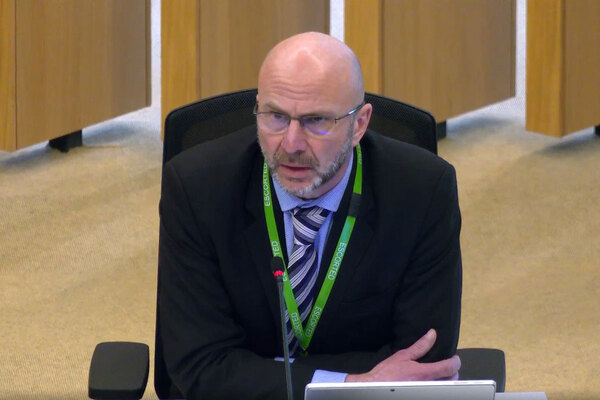You are viewing 1 of your 1 free articles
Is shared ownership worth reforming?
Shared ownership is far from a flawless system, but decreasing it would have huge financial impacts for the sector, writes Matthew Bailes, chief executive of Paradigm

Politicians of all stripes claim to be the champions of homeownership.
Voters have good reasons to be sceptical. Despite previous promises, house prices have raced ahead of earnings, to the point where very few young people have much hope of getting on the ladder without support from their parents.
There is a very simple reason for this: politicians have failed to come up with a comprehensive long-term housing plan that addresses the fundamental flaws in the market. The solutions lie in genuinely sorting out the planning system, major tax reforms and delivering more social housing, not short-term sticking plasters.
Nonetheless, there is a place for schemes that specifically support first-time buyers, particularly if they increase new supply and help people who would otherwise be unable to get on the ladder.
This means tying any subsidy to new homes only. But it doesn’t mean all schemes linked to new homes are sensible. Help to Buy, as we have seen, inflates prices, at least on the homes to which subsidy is linked, and involves risking a large amount of taxpayers’ money in exchange for a modest uptick in supply.
First Homes hands big subsidies to a small number of households who generally don’t need it – at the expense of a much larger number of would-be shared owners. By transferring risks to developers, it also adds to their absorption rate problems, thereby slowing down build-out rates. It should be scrapped.
Shared ownership is probably the best option in terms of demand-side subsidy. It targets people with low deposits and because housing associations take the sales risk, it helps to mitigate the absorption rate problem.
But it also has a modest reputation. Some of the criticism it receives is misdirected. For example, problems around fire remediation and the poor service from unregulated managing agents affect many leaseholders, not just shared owners.
I also think that disproportionate weight is given to how the scheme works in London. Inevitably, shared owners in the capital tend to buy small shares in very expensive medium and high-rise developments of flats. The view from Milton Keynes looks different.
However, there is a problem on repairs. Understandably, shared owners are not keen on bearing 100% of repair costs, or in due course the cost of replacing major components. The tensions around this issue are likely to increase given the work required to transition to net zero.
If providers took on these costs, the model would need much more subsidy, dramatically reducing the numbers that could be helped. Recent changes, which require landlords to fund some repairs for 10 years, fudge the issue. The main effect will be increased bureaucracy.
The issue of repairs liabilities is only a major problem if a shared owner does not 100% staircase before big repair bills start kicking in. Therefore an alternative way of solving the problem would be to support buyers to own their homes outright at an earlier stage.
The main barrier in this respect has been the extent to which house price inflation has outstripped wage inflation. This problem could be addressed if shared owners were allowed to buy additional shares at a more affordable price. This could be the day one price, or a price linked to inflation or earnings growth.
This might mean providers foregoing profits they would have made eventually thanks to house price inflation. But earlier staircasing would mean that the period in which providers subsidise rent would be reduced – a significant point given that providers’ borrowing costs are now double the yield from shared ownership rents.
It would also help providers free up balance sheet capacity to invest in new supply and trigger grant recycling, which would also make taxpayer funds go a lot further – essentially creating a revolving fund effect. In other words, there could be a win for first-time buyers, a win for providers and a win for taxpayers.
As things stand, the Labour Party seems lukewarm on shared ownership, and has hinted that it will scale back grant funding available in favour of social rent.
Given the level of unmet housing need, it is not hard to see where Labour is coming from. However, paring back shared ownership would have undesirable knock-on effects. For example, on many schemes shared ownership sales cross-subsidise other affordable tenures.
Lower levels of shared ownership – combined with higher interest rates and the plan to prioritise social rent over affordable rent – would mean that grant rates would have to go up substantially. This in turn would mean finding a lot more money or accepting substantially fewer grant-funded affordable homes. There would also be more subtle effects – including in terms of delivering all affordable schemes and/or mixed communities on some sites.
I think a better approach would be to reform and expand shared ownership. This would tick the boxes on new supply and it would help to meet Labour’s stretching 1.5 million-home target, support first-time buyers and offer shared owners an improved deal. The politics seems to work, too: an offer to first-time buyers that supports more people to get on the ladder, rather than yet another gimmick.








